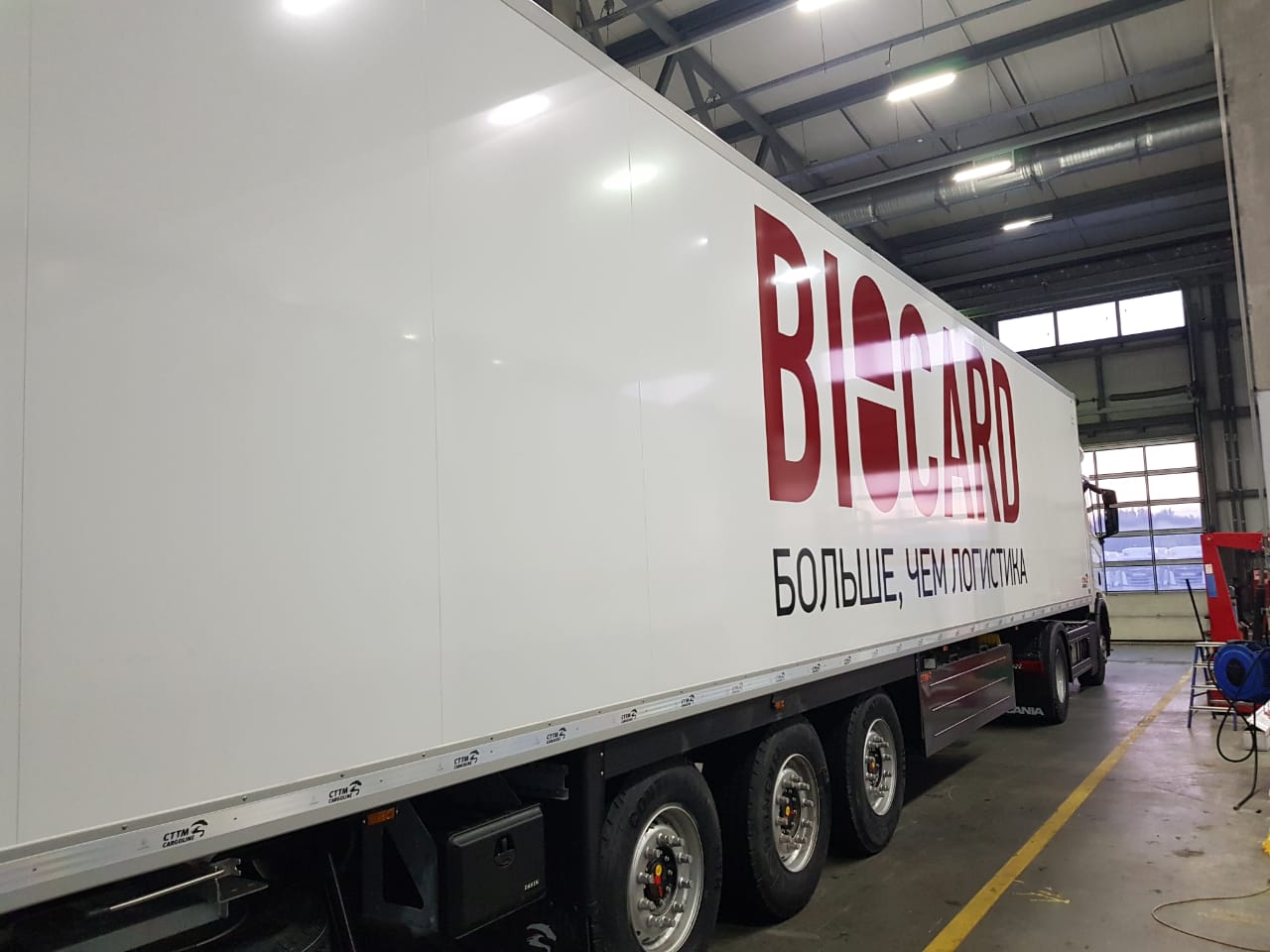
Refrigerated Vehicle Transportation: Full Truckload (FTL) and Less Than Truckload (LTL) Logistics.
In the logistics industry, it is crucial to provide tailored transportation solutions that cater to clients' specific needs. For temperature-sensitive shipments, refrigerated vehicle transportation plays a vital role in ensuring the integrity and quality of the products being transported. This is where Full Truckload (FTL) and Less Than Truckload (LTL) services come in.
Full Truckload (FTL) Service: FTL service involves the transportation of large quantities of goods, filling the entire truck's capacity. This service is typically used for high-volume shipments, where the client's cargo requires the whole truck space. The designated truck carries only one shipment, ensuring the quickest and most efficient route possible from the point of origin to the destination.
Less Than Truckload (LTL) Service: LTL service, on the other hand, caters to smaller shipments that do not require an entire truck's capacity. In this case, the truck carries goods from multiple clients, with each shipment occupying only a portion of the available space. The transportation provider consolidates these shipments, strategically planning the route to ensure timely and efficient delivery.
Importance of Proper Care for Refrigerated Shipments: Refrigerated shipments often carry expensive and delicate products, such as pharmaceuticals, perishable food items, and biomaterials, which require strict temperature control throughout the transportation process. Ensuring the quality and safety of these goods is of utmost importance, and thus, it is essential to maintain the following:
- Strict Validation Process: Refrigerated vehicles should undergo a thorough validation process, ensuring that they meet all necessary regulations and requirements for temperature-sensitive shipments.
- Regular Service and Testing: To guarantee optimal performance and reliability, refrigerated trucks must be regularly serviced and tested. This includes checking the refrigeration systems and monitoring devices to ensure they are functioning correctly.
- Exceptionally Trained Drivers: Drivers handling refrigerated shipments must be highly trained professionals with a deep understanding of the importance of temperature control.
They should be well-versed in maintaining the required temperature settings, monitoring the truck's performance, and quickly addressing any issues that may arise during transportation.
Both FTL and LTL services for temperature-controlled shipments play a significant role in the logistics industry. By providing these specialized services, logistics providers can cater to the unique needs of their clients, ensuring the safe and efficient delivery of temperature-sensitive goods.
Optimizing Temperature-Controlled Shipments:
- To optimize temperature-controlled shipments, logistics providers need to take additional steps beyond merely selecting the right service (FTL or LTL) for their clients. These measures include:
- Route Optimization: By carefully planning transportation routes, providers can minimize transit time and reduce the risk of temperature fluctuations affecting the cargo. This is especially important for LTL shipments, where multiple stops and deliveries must be strategically coordinated.
- Real-Time Monitoring: Implementing advanced monitoring systems in refrigerated vehicles allows logistics providers and clients to track temperature data in real-time. This enables them to respond quickly to any deviations from the required temperature range and take corrective action if necessary.
- Specialized Equipment: Refrigerated trucks must be equipped with state-of-the-art technology, such as temperature-controlled compartments, advanced insulation materials, and high-quality refrigeration systems. These features help maintain the required temperature range throughout the transportation process.
- Compliance with Regulations: Logistics providers must ensure that their refrigerated transportation services comply with all relevant national and international regulations. This includes obtaining necessary permits and certifications and adhering to industry best practices for temperature-controlled shipments.
- Emergency Contingency Planning: In the event of unforeseen circumstances, such as equipment failure or extreme weather conditions, logistics providers must have contingency plans in place to protect temperature-sensitive cargo. This may involve having backup trucks available or rerouting shipments to ensure they reach their destination safely.
By implementing these strategies, logistics providers can offer their clients reliable and efficient temperature-controlled transportation services. Whether utilizing FTL or LTL services, maintaining the integrity of temperature-sensitive shipments is essential to delivering high-quality products that meet the needs of end-users.

How we work
SERVICE IN DETAILS
Reefer transportation is one of the most popular services of «Biocard Logistics». We offer shipment of temperature-sensitive cargoes in Moscow and to other cities of Russia. We will arrange for you the delivery of:
- medicines, including vaccines, reagents, and certified reference samples;
- biomaterials;
- raw materials for the pharmaceutical and chemical industry;
- food products;
- dangerous goods, etc.
RULES FOR THE ORGANIZATION OF REEFER TRANSPORTATION
For organizing transportation of perishable products the sanitary norms and rules shall be strictly observed:
- All drivers shall be trained to work with thermolabile cargoes and have a health permit.
- Each carrier vehicle should be inspected and issued a sanitary card.
- Refrigeration system must provide not only cooling but also heating in winter (if necessary).
- The vehicle body must be made of corrosion-resistant materials not affecting transported products and should be available for sanitary treatment.
- The cargo must be placed in the vehicle body in such order to ensure free air circulation.
- The vehicle body must be sealed..
- Upon delivery completions, the vehicle body must be disinfected.
- In the case of collective shipments, goods of the same type with the same temperature conditions are placed in one vehicle.
- Products missing expiration dates are not accepted for shipment, as well as if the expiration date is earlier than the delivery completion date.
We have a range of benefits of working with us
Why choose
Biocard
Best and flexible prices for customs clearance
Supply chain efficiency growth
Significant improvement of the quality of the logistics
You can track your shipments in real-time
You cooperate with the one-stop services provider
Guarantees fulfilled by contractual obligations
